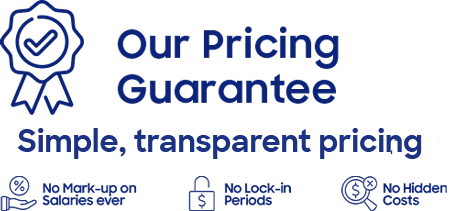Post-JobKeeper: Outsourcing as a Cost-Efficient Strategy
With Australia’s JobKeeper $90-billion wage subsidy program ending last March 28th, economists project over 5,000 Australian businesses supported by the stimulus to struggle without the financial aid.
According to a commercial credit reporting bureau, the post-JobKeeper phase is “a difficult but necessary transition” as the nation gradually returns to normal. However, the termination of JobKeeper may lead an estimated 5,000 companies down the path to insolvency, especially industries heavily impacted by the pandemic with hospitality, F&B and tourism at the highest risk of defaulting followed by the IT, transportation and construction sectors.
So how can these companies survive post-JobKeeper?
Financial experts recommend that businesses restructure and scale down in terms of workforce and infrastructure, focusing their resources on their most profit-generating assets and, unfortunately, letting go of the rest.
This difficult transition will require tough decisions and a cost-efficient strategy. One cost-efficient solution that does not require businesses to scale down is outsourcing. Outsourcing will enable Australian businesses to save on labour and infrastructure costs while maintaining key specialised functions onshore.
Here are three ways outsourcing can help businesses recover and stay competitive in the market after a long and gruelling fight against the COVID-19 pandemic.
How Outsourcing Can Help Australian Businesses Post-JobKeeper
1. Access to a skilled talent pool
Partnering with outsourcing companies overseas gives Australian companies access to a rich pool of talent and broad range of trained and experienced professionals, so they can easily build a specialist or multi-disciplinary team in the Philippines. Because of the lower cost of living in the country, high-calibre talent can be hired at a much lower labour cost. For instance, the provider oversees the end-to-end recruitment process and training for its clients, and this also includes salary benchmarking and a transparent pricing structure.
2. Overhead cost savings and reduced risk
If building a team offshore, Australian businesses don’t have to worry the cost of office space as this is part of the service offering from many outsourcing companies. Depending on the partner, businesses can opt for shared or dedicated office spaces or a hybrid solution to fit the current work landscape. As an example, Emapta’s network of 14 offices can accommodate different workspace options and come with business continuity features such as 100% power and internet redundancies as well as bank-level security features.
3. Improved business efficiency
With all the experience outsourcing firms have, especially the more established ones, the level of flexibility and focus they can provide to businesses allows business owners to focus on running other aspects of their business, in particular revenue-generating initiatives and activities. The outsourced partner acts as a conduit between the business and its team of professionals offshore.











